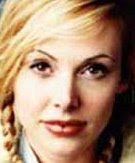By Ahmad Mustafa, Special to Gulf News
June 23, 200
Daily protests in Tehran since the announcement of the presidential election results have led to euphoria in the mainstream media about the prospect of change in Iran.
Challenges by candidate Mir Hussain Mousavi to the authenticity of the election results, which gave incumbent President Mahmoud Ahmadinejad a majority win and thus a second term, are being portrayed as the start of a revolution to bring down the ruling regime.
Mousavi has been labelled a reformist and perceived as a pro-West opposition leader who will transform Iran from an 'axis-of-evil' country into a modern, democratic state. Those who believe this are misinformed. The media, especially those in the West and some Arab pro-Western outlets, are frustrated that years of vilification of Ahmadinejad and Iran have not influenced opinion in that country.
This is understandable. If you worked hard to convince people that their leader is a villain and they decided otherwise it would be a disappointment for you - but this is not a justification for spreading disinformation.
The first claim yet to be verified is that Mousavi is a reformist. It is not clear what is meant by 'reformist'. Most likely, it denotes someone who has the potential to be pro-West.
Mousavi is a member of the Expediency Council of the system, the highest body in the regime, headed by the so-called godfather of reform in Iran, Akbar Hashemi Rafsanjani. He was appointed prime minister by the late leader of the revolution, Ayatollah Ruhollah Khomeini, and reported to him in the early years of the regime (there was no president then).
He led the country through the war with Iraq and spared himself any blame in the Iran-Contra affair (when Israeli and US weapons were sold to Iran and the money was used to finance a rebellion against a sovereign government in Nicaragua).
Mousavi is part of a group within the system that seeks change mainly in the economy, and would probably seek to decentralise power somewhat. That is nothing new - Rafsanjani, who studied with Khomeini and became his confidant, wanted to curtail the power of the Supreme Leader and the military and bureaucratic apparatus around him.
During his presidency in the late eighties through the nineties, Rafsanjani failed to achieve what he set out to do. He was succeeded by Mohammad Khatami, another labelled a reformist by the West, who served as president for two terms. But he also failed to bring about change, mainly economic, as Rafsanjani had before him.
Failure to change the economic system and to give private businesses more clout cannot be blamed solely on the regime. After all, figures from within the system sought to bring about this change. But the public feared that business leaders would maximise their profits at the expense of social justice. They saw examples of this abroad, from oligarchs in Russia to the nouveau riche in Egypt.
This is why Ahmadinejad - who is not part of the clergy but became popular as mayor of Tehran and who defeated Rafsanjani in presidential elections in 2005 - pursued populist economic policies that have been criticised by his opponents, but welcomed by the majority of lower middle class and poor Iranians.
The media might not approve of his policies, likening them to those of President Hugo Chavez in Venezuela, but it cannot be denied that they meet with broad public approval.What the media are calling a revolution is really just a dispute between two factions of the Iranian regime. Ahmadinejad is not really part of it - he is just the enforcer of the dominant faction's policies.
This internal struggle has nothing to do with other issues - say, for example, the nuclear programme, which began before the current president came to power.
The media are being really arrogant when they call for social and cultural reform, as Iran is more democratic than many of the West's allies in the region - actually, there is no comparison. It could be true that the West might find it easier to deal with entrepreneurs who are willing to compromise national interests to make gains from a more open economy. But while politicians normally twist the facts to achieve their goals, the media should not do the same. Moreover, I get the impression that the British media are leading the spin campaign - the Americans seem to have left the worst aspects of their foreign policy for their traditional allies to shoulder.
I do not think Britain should be involved in this, as media misinformation about the Iranian people is shaping public opinion. I can easily see the end result being that taxpayers pay for that involvement with the likely influx of Iranian refugees into Britain in the event of a civil war.
Dr Ahmad Mustafa is a London-based Arab writer.
http://archive.gulfnews.com/opinion/columns/region/10325445.html
Tuesday, July 14, 2009
Subscribe to:
Post Comments (Atom)



1 comment:
An Iranian blogger on The Daily Kos compared the two Presidential candidates to the Corleone family and their top rivals.Both sides are hated.
Post a Comment